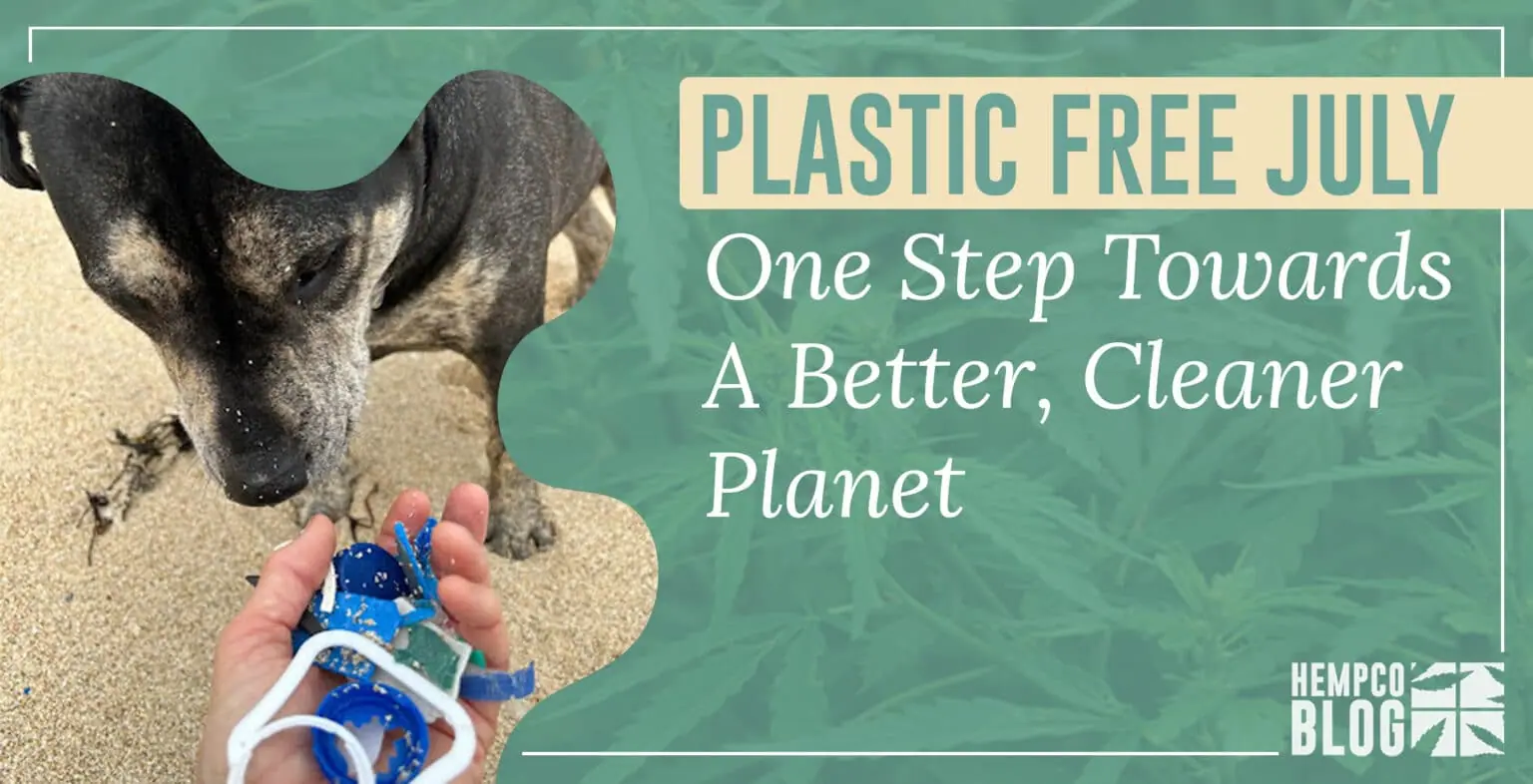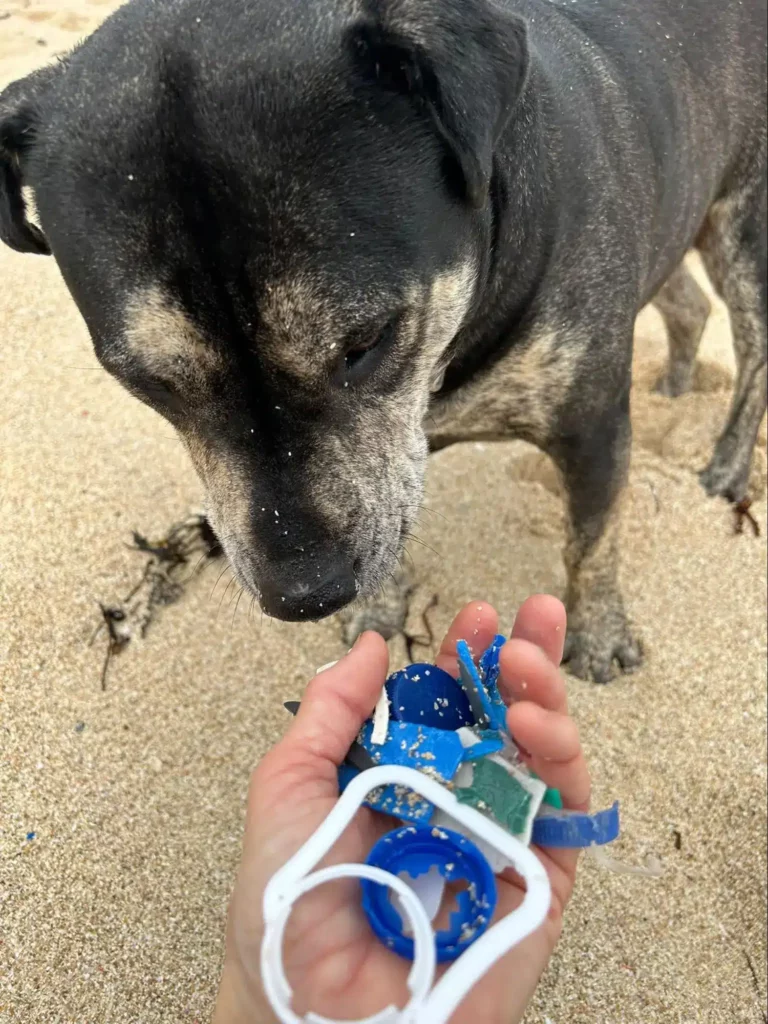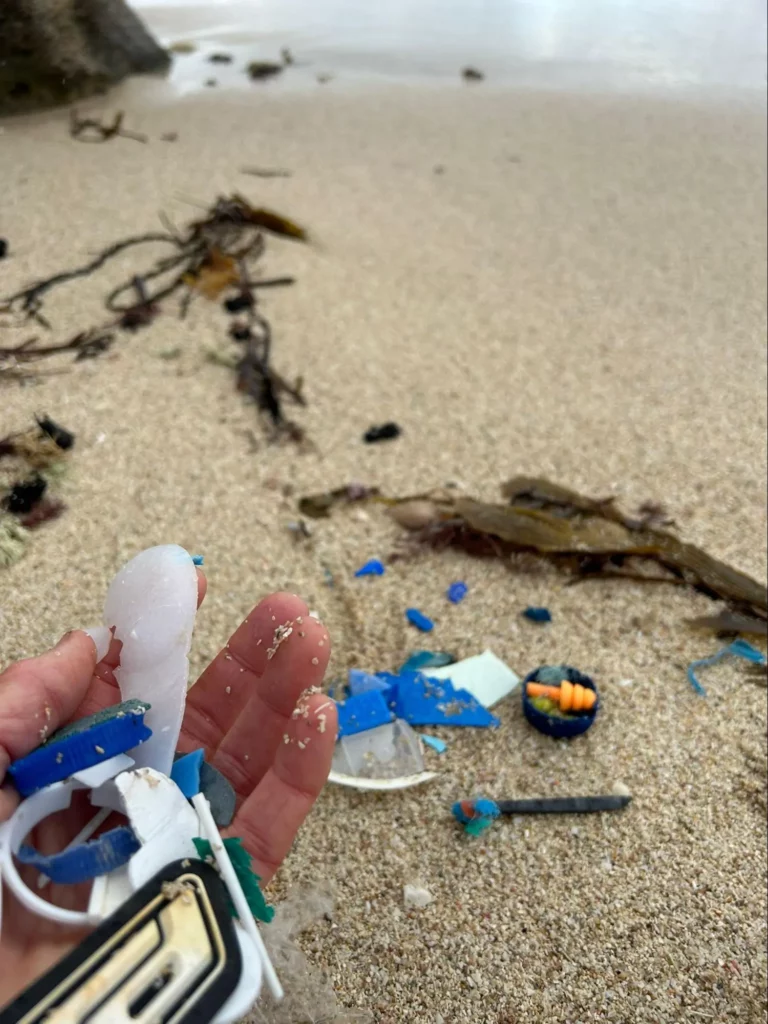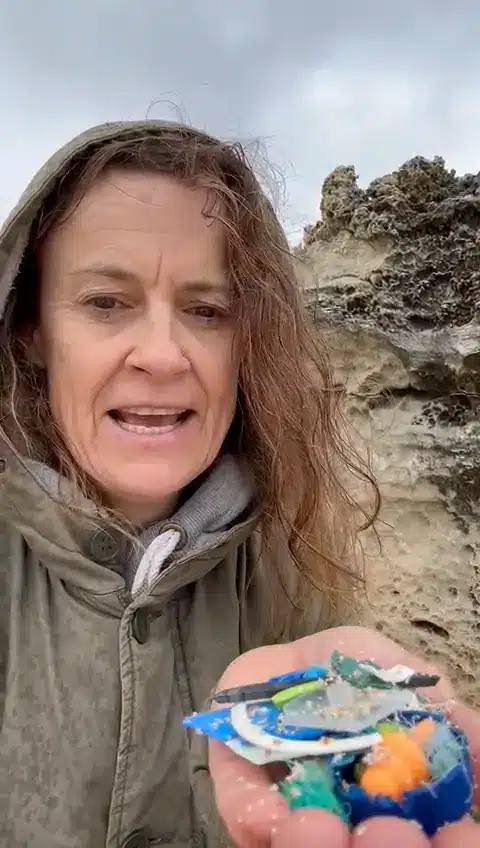Menu

The upcoming and current issues with our planet’s climate are not exactly a shock. In fact, scientists have been warning humans about climate change since the 1950s. Yet, we continued to ignore the gravity of our situation. Unfortunately, that situation has become a reality - and we all need to work together to repair human damage.
What is one of the most significant contributors to climate change and global warming? Plastic, or specifically single-use plastics. Think shopping bags, water bottles, toothbrushes. Humans use a shocking amount of single-use plastics per year. Up to 380 trillion tonnes of plastic are produced annually, and we use around 50% of that alone on single-use plastics.
So, if climate change is beginning to become a stark reality call for you, too, you might be wondering some ways you can help. Plastic Free July is a global organization that encourages you to take one step towards a better and cleaner planet.

Recently, our team member Georgina was dismayed to discover a deluge of plastics washed up on the usually pristine beaches around Margaret River after a big storm. It was a personal anecdote that struck a chord, raising concerns about the state of our beautiful coastal environments.
What's even more alarming is that most of the plastics she found were already breaking down into microplastics. This begs the question: How much of this invisible pollution exists beneath our feet as we walk along the beach? Are our sandy shores destined to become indistinguishable from the microplastics polluting them? Would you allow your child to play in a sandpit filled with microplastics?
If we don't take action soon, we risk reaching a critical point where our lasting legacy is nothing more than a strange layer of plastic sediment in the Earth's fossil record.

It feels like if we don’t do something about this soon, then we will reach a critical point of ourr civilization where our lasting legacy will be nothing more than a strange layer of plastic sediment in our Earths fossil record.
Well, quite simply, plastic-free July aims to encourage people to go plastic-free for July. Sounds pretty easy. It is, which is why everyone should give it a go. Reducing the sheer volume of single-use plastics humans use is a goal everyone must aspire to.
We hope that once you see how easy Plastic Free July is - you can start implementing it every other month too!

There are plenty of everyday things we consume every day that is wasted: plastic, cardboard, paper, and fabric - to know a few. However, plastic is quickly becoming one of the most concerning - especially considering only 9% of plastic is recycled globally. Let's take a look at some of the most prominent plastic culprits:
The effects of plastic waste have become increasingly evident as time has passed. Humans, animals, and the planet itself all face devastating consequences due to human plastic consumption. Let's take a look at just some of the horrible effects plastic waste has:
Of course, one of the most significant issues with plastic is the waste. Unfortunately, most waste ends somewhere on our planet - like the Great Pacific Garbage Patch. Not only does this cause issues for the surrounding water and marine life, but toxins, chemicals, and pollutants are all released. These can damage the surrounding soil area with chemicals and other toxic chemicals.
As if that is not bad enough, a significant build-up of slowly deteriorating plastic realizes vast amounts of chemicals in the environment. To make matters worse, the planet is already being damaged from just trying to create this plastic that is thrown back into the ocean.
Most of us have seen devastating images of sea turtles trapped in plastic wrappers, whales tangled in ropes, and so much more. The ocean is home to abundant wildlife - many of which are not highly endangered or even extinct due to plastic pollution.
Similar to plastic polluting the air, the toxins and chemicals in the plastic sink into the ocean too. This plays a prominent role in marine life health and has even deterred marine life from some sea regions. In turn, this has disrupted the natural food supply chain and caused some larger animals, such as whales, to starve to death.
I suppose it feels a little karmic to write about how the consequences of our devastating behavior are catching up with us, but unfortunately, it's the reality. So, what kind of effects does plastic pollution have on humans?
Well, for one, we have to inhale this toxic, chemical-filled air. Soil damage can cause crop issues and result in plenty of farmers losing their land. However, one of the most significant issues is our consumption of microplastics. Primarily through eating fish - but also land crops, the average human consumes around 5 grams of microplastics per week.
Consuming microplastics can cause an array of health issues for us. Oxidative stress, inflammatory lesions, neurotoxicity, and even cancer, are some health issues linked to the consumption of microplastics.
Have we got your attention now?
Reducing plastic consumption globally must be a priority for all humans, and Plastic Free July is a great stepping stone. We know sometimes the idea of going plastic-free can feel overwhelming, so here are some helpful tips to get started:
At Margaret River Hemp Co, we have taken significant steps to be plastic-free. Protecting the environment is such an essential part of what we do, so here are some of the actions we have taken and are taking for Plastic Free July:
The planet is rapidly warming, and we are in crisis mode, and plastic waste plays a significant role in that. One of the best things you can do for your home and your health this July is to go Plastic Free! You will make a difference to the world and yourself. Before you know it, every month will be a plastic-free one.